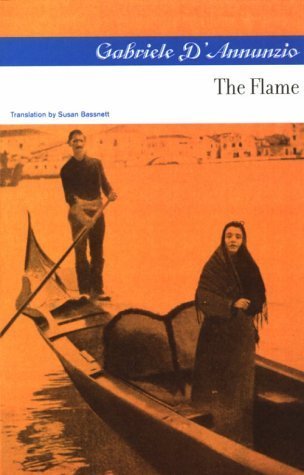What do you think?
Rate this book


312 pages, Paperback
First published January 1, 1900
Questo libro è pura poesia. Ogni parola che esce dalla bocca di Stelio Effrena è un inno alla bellezza, e l’arte fa da contorno nella magica atmosfera decadente della Venezia di fine Ottocento.
Sentite l’autunno, Perdita? — chiese egli all’amica assorta, con una voce risvegliatrice.
Ella riebbe la visione dell’Estate defunta, chiusa nell’involucro di vetro opalino e sommersa in fondo alla laguna algosa.
— Mi sta sopra — rispose ella con un sorriso di malinconia.
Questo piccolo estratto di conversazione tra i due protagonisti ne è un esempio. Penso che questa sia la descrizione della sensazione che si prova alla fine dell’estate più bella e accurata che abbia mai letto in tutta la mia vita. Il fatto poi di sentire l’autunno, come un peso che improvvisamente si posa sulle spalle. O forse sul cuore. È incredibile come D’Annunzio sia riuscito in questo romanzo a farmi vedere delle sensazioni e degli stati d’animo grazie alle sue parole.
Proprio per questo i personaggi sono tridimensionali, veri, puri, hanno mille sfaccettature e si mostrano nudi e vulnerabili al lettore, donandosi completamente a lui perché ne sia ammaliato e allo stesso tempo spaventato e perché si riconosca in loro.
Oltre a questo, trovo che nessun autore contemporaneo riesca a trasmettere erotismo come gli autori classici. Oggi si è molto più espliciti, eppure gli autori dei classici senza descrivere l’azione nel dettaglio ti facevano capire e provare molto di più semplicemente analizzando i gesti e le sensazioni. Riuscivano a trasferire sulla pagina il conflitto tra corpo e mente, tra istinto e razionalità, l’effetto travolgente dell’attrazione, la perpetua lotta interiore dell’amore. Il corpo e il cuore che sanno già da tempo cosa vogliono e il cervello che si rifiuta di accettarlo. In questo romanzo ho trovato tutti questi aspetti, e sono rimasta incollata alle pagine assorta in questo mare di emozioni travolgenti.
— [...] ... Quando le tue palpebre battono, mi sembra che battano come il mio sangue e che l’ombra delle tue ciglia tocchi l’intimo del mio cuore...
È un libro impegnativo, e se lo avessi letto anni fa non penso che lo avrei apprezzato. Invece leggendolo ora mi è piaciuto tanto, a volte mi ha lasciata persino senza parole. E sarebbe entrato a far parte dei miei preferiti se non fosse stato per le allegorie eccessive e i troppi se pur affascinanti riferimenti ed elogi ad opere e personaggi illustri del suo tempo, cosa che ha rallentato un po’ troppo il corso degli eventi, e ha reso alcuni capitoli veramente difficili da leggere. Ma al di là di questo è davvero bello.